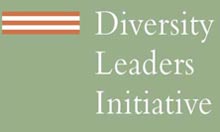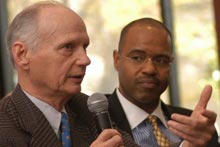On being part of the Fall 2012 Lowcountry Class…
 There are times in life when we must revel… no
There are times in life when we must revel… no t because we’re singing our own praises, but because we are honored and thankful. I am in the midst of one of my proudest achievements, and I want to rejoice. Because, quite frankly, I’ve worked hard to deserve it. Some might say I’m being pretentious, but I know better about myself. I do not have a pompous personality. My disposition is more modest, and I know the difference between being proud and ostentatious. And I want my daughters to understand the distinction as well. Confidence in women is attractive, admirable and necessary.
t because we’re singing our own praises, but because we are honored and thankful. I am in the midst of one of my proudest achievements, and I want to rejoice. Because, quite frankly, I’ve worked hard to deserve it. Some might say I’m being pretentious, but I know better about myself. I do not have a pompous personality. My disposition is more modest, and I know the difference between being proud and ostentatious. And I want my daughters to understand the distinction as well. Confidence in women is attractive, admirable and necessary.
Back in June, I was humbled by a nomination from Mayor Billy Keyserling to be part of South Carolina’s Diversity Leaders Initiative presented by The Riley Institute at Furman University. The Mayor and I met with Don Gordon, Executive Director of The Riley Institute and Benny Walker, a Senior Associate with The Riley Institute. I didn’t realize I was being interviewed over dinner, but indeed I was. They chose class participants with diverse backgrounds based on leadership, active community participation and professionalism. A few days later, I was accepted into the program. And that’s why I‘m proud today.
Our first meeting of the Lowcountry Class was held in August at the South Carolina Research Authority. All forty of us introduced ourselves with our names, our professions and our hometowns, and discussed reasons why diversity is important to us and what we hope to accomplish from this class.
In less than an hour, we knew each other on a personal level; because we weren’t afraid to express our struggles, impose our beliefs and acknowledge divisions in our state that continue to challenge progress.
And we’re about as diverse a group as could be. However, we all have one thing in common. We recognize and respect that we differ. And that’s why we’re all there.
I’m different from the norm, because I am a single, working mom. My personal diversity issues stem from gender and marital status inequalities. There are others that face daily disparity because of their age, ethnicity, physical and mental ability, race, religion, sexual orientation and weight. Then there are other issues that relate to diversity based on personal hobbies and habits, language skills, geographic location and income level. The focus of this introductory exercise was to emphasize our differences, no matter the foundation. And the focus of the entire class is to educate our peers and colleagues to understand differences in order to promote fairness and equality.
 In our September class, we discussed the definition of diversity, prioritizing levels of diversity and case studies relating to diversity in the workplace and at home. We were also assigned teams to initiate our community action projects, which we’ll present in December.
In our September class, we discussed the definition of diversity, prioritizing levels of diversity and case studies relating to diversity in the workplace and at home. We were also assigned teams to initiate our community action projects, which we’ll present in December.
My group includes Stuart Barber, Project Architect with McMillan Pazdan Smith; Faith Polkey, Chief of Pediatrics at Beaufort Jasper Hampton Comprehensive Health Services; Sandra Chavez, Former Chair of United Way of the Lowcountry; Sam Murray, Mayor of Port Royal; Paul Sommerville, Vice Chair of Beaufort County Council; Andy Patrick, SC State House District 123 Representative; and Lisa Sulka, Mayor of Bluffton.
We met recently to complete a homework assignment. We watched the award-winning movie, Crash. If you haven’t seen it, I highly recommend watching it without children present. It delivers an amazing portrait of diversity issues that plague our society and invites stimulating conversation for those who view the movie together. And that’s what we did. We discussed the movie for an hour and a half and recognized that each and every one of us holds some form of prejudice, whether we admit it or not. It’s just the realistic truth. We, as humans, discriminate on a daily basis. So, if we all do it, then how do we move forward, especially in this state?
There is no one solution. But there are methods to acknowledge and recognize. And that’s why class participants are charged with creating community action projects to advocate diverse acceptance. Each team will have the opportunity to create a project that will give back to the community.
And, more importantly, we will keep exercising the practice of recognition. If we don’t acknowledge the problem, it won’t go away. We must train our minds to understand that diversity is broad, dynamic and complex. Some challenges do not lend themselves to a right-wrong model. But giving attention to all diversity dimensions will impact the achievement of the common purpose.
I am so appreciative to be a participant in this incredible program. Thank you, Mayor Keyserling, for the honor of the nomination. Again, I am humbled to be part of such a distinguished group, and I can’t wait to write about our community action project when it is completed in December. To Don Gordon and Benny Walker, thank you for including me. In recognizing differences, I hope to be able to make one too.
What is Diversity Leadership Initiative?
South Carolina has always been a highly diverse state. Yet, for many of its citizens, being part of that diversity has been a considerable disadvantage. Historical racial divisions and cultural legacies have created deep divides that continue to challenge social and economic progress in South Carolina. In addition, over the last two decades, South Carolina has rapidly become an even more diverse state. Marked especially by in-migration of people from Central and South America, particularly in the rural and inner city urban areas of our state, and by retirees moving to the coast, lakes, and mountains, these new South Carolinians contribute to a much more complex demographic matrix.
Recognizing an urgent need for diversity-related programming, the Riley Institute, then in cooperation with the American Institute for Managing Diversity (AIMD), launched a unique program that encouraged community leaders to consider the challenges and opportunities presented by the many facets of diversity in our state, including among others, differences in cultural background, language, gender, and physical ability.
Since its inception in 2003 in the upstate of South Carolina, the Riley Institute Diversity Leaders Initiative (DLI) has operated statewide, with classes in the South Carolina Lowcountry (2005) and Midlands (2006). Over 1,000 CEOs of corporations, mayors, city and county council members, legislators, school superintendents, pastors and rabbis, non-profit heads, chamber of commerce directors, and community leaders have graduated from the program.
Participants in Riley Institute diversity programs hold leadership positions in business, government, and community organizations and are chosen from nominees who have been asked to apply. Classes, limited to around 40 participants, are shaped to reflect the diverse demographic characteristics of South Carolina.
Classes meet four times in monthly sessions during which participants acquire frames of reference and skills to be effective leaders in South Carolina’s increasingly diverse social environment. During the class, participants work in groups to create and carry out community action projects. Throughout the implementation of their projects, participants acquire diversity leadership skills absolutely invaluable for addressing diversity efforts in the workplace and in the greater community.
The facilitator of Diversity Leaders initiative is Juan Johnson, Senior Distinguished Fellow in Diversity Leadership with the Riley Institute. After an illustrious career of 21 years with Coca-Cola, Inc., where he served as the company’s first ever Vice President for Diversity Strategy, Johnson recently launched his own business, Juan Johnson Consulting and Facilitation.
The Riley Institute was founded by Richard W. Riley, former U.S. Secretary of Education and Governor of South Carolina. For more information about The Riley Institute and Diversity Leaders Initiative, please visit www.riley.furman.edu/diversity.
Diversity Leaders Initiative Alumni from Beaufort County:
Emory Campbell, Former Executive Director of Penn Center; Matthew Clancy, City of Beaufort Chief of Police; Roland Gardner, CEO of Beaufort Jasper Hampton Comprehensive Health; Billy Keyserling, Mayor of Beaufort; Tim Scott, U.S. House Representative for the 1st District of South Carolina that includes portions of Beaufort County; Marlena Smalls, Musical and Cultural Historian and Entertainer; Duffie Stone, Fourteenth Circuit Solicitor for the State of South Carolina; Rick Toomey, President and CEO of Beaufort Memorial Hospital; Valerie Truesdale, Former Superintendent of Beaufort County School District; and Fred Washington, Jr., Chairman of Beaufort County Board of Education.
Sponsors of the Program: The Diversity Leaders Initiative, a program of the Riley Institute at Furman, is made possible with generous support from the following organizations: Total Wine, BlueCross BlueShield of South Carolina, Greenville Hospital System University Medical Center, Elliott Davis, Michelin, N.A., Spartanburg Regional, TD Bank, AnMed Health, BMW, The South Carolina Research Authority and SCBIZ.







